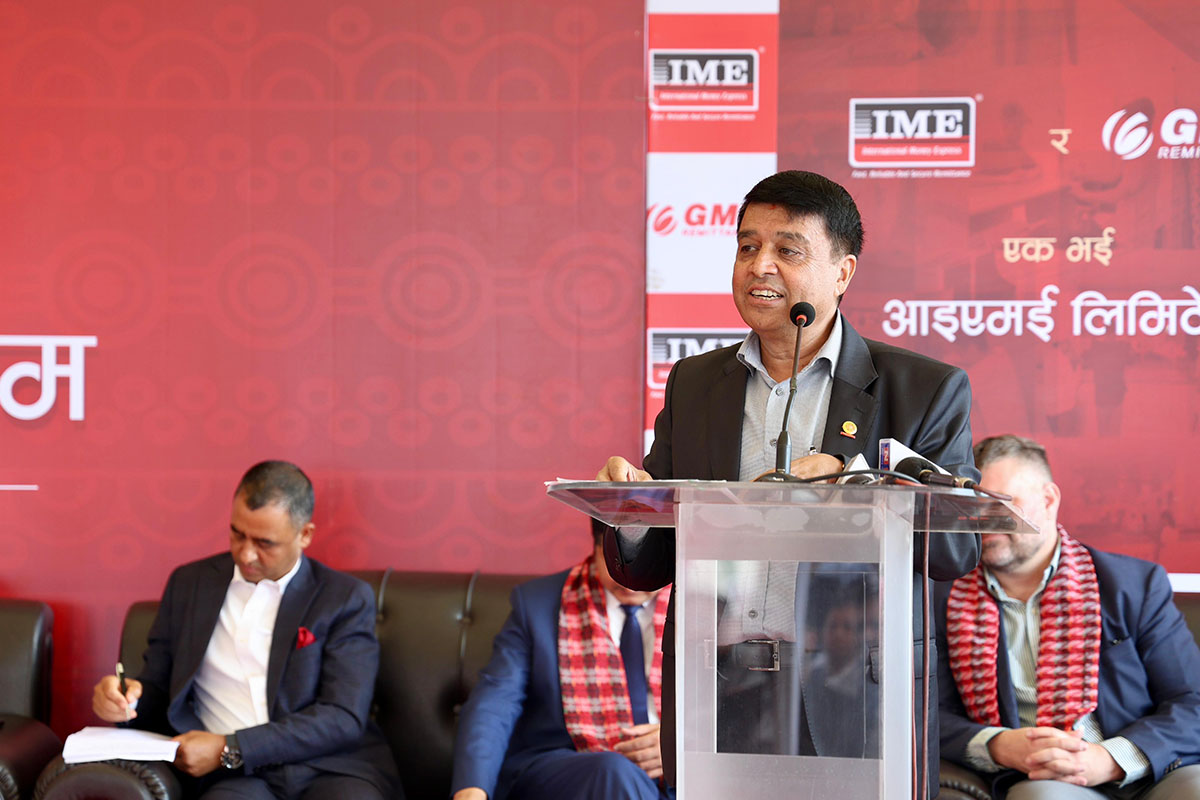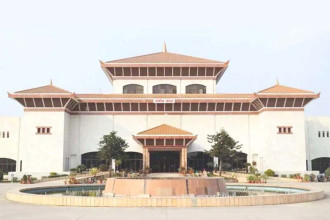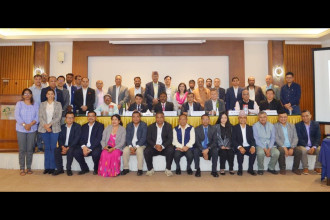
KATHMANDU: IME Remit and GME Remittance have merged and commenced integrated operations today.
At the inauguration, Chandra Prasad Dhakal, Co-Founder and Chairman of IME, highlighted IME’s pivotal role in transforming Nepal's remittance sector. He noted that IME has been at the forefront of efforts to formalise the sector, significantly shifting remittance flows from informal to formal channels.
Dhakal recounted IME's early days in 2001 as a small money exchange counter, which has since grown to become the largest player in Nepal’s remittance market. He emphasised the company's efforts to provide a secure, reliable medium for Nepali migrant workers to send money home, addressing the risks associated with informal channels.
"IME Remit has been leading the charge in formalising Nepal's remittance sector," Dhakal stated. "When we started, only about 20% of remittances were formal. Today, nearly 80% are channelled through formal means, with IME being a key driver of this change."
Dhakal also noted that IME Group now commands approximately 50% of the remittance market in Nepal and has expanded into various sectors, including banking, tourism, and infrastructure development. He hinted at an upcoming public offering to further broaden public ownership of the company.
Expressing gratitude to the Government of Nepal, Nepal Rastra Bank (NRB), and other stakeholders, Dhakal reaffirmed IME’s commitment to enhancing the convenience, security, and accessibility of remittance services, ensuring the company remains a cornerstone of Nepal’s economic growth.
With the start of integrated operations, Dhakal announced his resignation from the IME board of directors. "When NRB introduced policies to merge banks to increase capital, we were at the forefront of implementation. Global IME Bank has become the largest commercial bank in Nepal by merging 21 different BFIs," Dhakal said. "Now, with NRB's policy on the merger of remittance companies, we are the first to implement it."
Dhakal noted the recent increase in remittance volumes and the development of digital technology, which allows remittances to be sent directly to wallets or bank accounts. He suggested it is time to reconsider the jurisdiction of remittance companies.
Addressing the programme, NRB Deputy Governor Bam Bahadur Mishra stressed the need to control Hundi transactions and promote legal remittance channels. He urged Nepalis abroad to send money through legal means and assured that the central bank would ease policies to facilitate remittance flows. Remittances constitute around 24% of Nepal's GDP, and controlling illegal Hundi transactions could significantly boost the economy.





-1745481452.jpeg)
